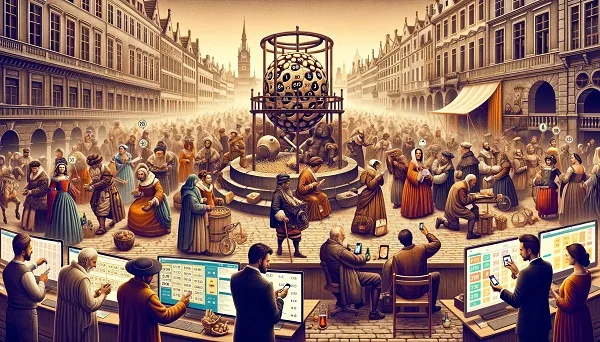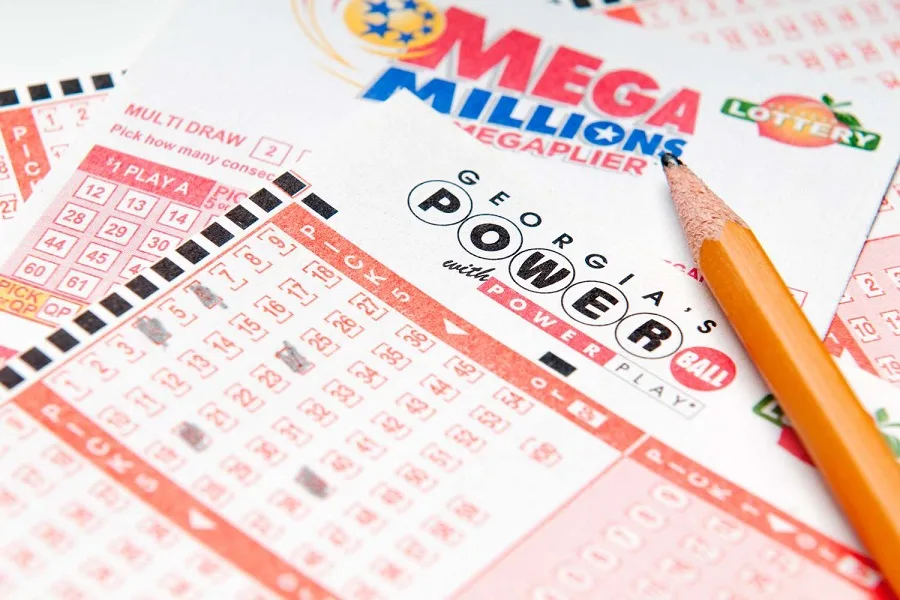
The Evolution of the Lottery: A Journey Through Time
The lottery has been a part of human history for centuries, evolving from simple raffles to complex, multi-national games with enormous jackpots. Its journey is a fascinating tale of society’s evolution, technology’s impact, and humanity’s unchanging love for the game of chance.
When and by Whom It Was Created
The origins of the lottery can be traced back to ancient times, with the first recorded signs of lottery games appearing in the Chinese Han Dynasty between 205 and 187 BC. These early lotteries were believed to have helped fund major government projects like the Great Wall of China. However, the lottery as we know it began to take shape in 15th century Europe, where various towns held public lotteries to raise money for town fortifications, and to help the poor.
In 1539, the first state-sponsored lottery in the modern sense was organized in France by King Francis I. It was called “Loterie Royale” and was authorized with an edict from Châteaurenard. This lottery was a far cry from today’s games, with tickets being expensive and the social classes largely excluding the common people from participating, leading to its failure.
Why Did Such a Game Appear, Did People Need It?
The inception of the lottery was driven by the need to raise funds without imposing additional taxes. Governments and organizers saw it as a way to gather money for public projects, like infrastructure, education, and in times of war, without burdening the citizens. The allure of winning a prize, often in the form of money or valuable goods, made lotteries popular among the people, providing both a financial solution for governments and entertainment for individuals.
Furthermore, lotteries were seen as a form of social equalizer. They allowed anyone, regardless of social status, to participate and have a chance at winning. This was particularly important in times when social mobility was limited and opportunities to change one’s fortune were scarce.
The psychological aspect of lotteries cannot be understated. The thrill of the game, the anticipation of the draw, and the possibility of life-changing winnings have always drawn people to the lottery. It tapped into the human nature of risk-taking and the eternal hope for a better life, making it an enduring pastime across cultures and epochs.
How It Gained Popularity
The popularity of the lottery grew steadily with the introduction of more accessible games and the establishment of permanent lottery institutions. In the 17th century, the Netherlands played a significant role in the lottery’s development, with lotteries becoming a common means of raising funds for public projects and charities. The concept spread across Europe, with each country adapting the game to its own needs and traditions.
In the 18th century, lotteries became a widespread phenomenon in England and the United States, where they played a crucial role in financing private and public ventures, including the founding of several American colleges. The lottery’s ability to raise funds for a wide range of causes, from education to infrastructure, without increasing taxes, contributed greatly to its popularity.
As lotteries evolved, they became more sophisticated, with the introduction of instant-win scratch cards and the expansion of lottery games to include daily and weekly drawings. The creation of large, multi-state or national lotteries, such as the Powerball and Mega Millions in the United States, marked a significant milestone. These games offered larger jackpots, attracting a broader audience and increasing participation rates dramatically.
The role of the media cannot be overlooked in the lottery’s rise to fame. Coverage of lottery jackpots and winners’ stories in newspapers and on television helped to embed the lottery in the cultural consciousness, making it a topic of daily conversation and a widespread social phenomenon.
Additionally, the introduction of charitable lotteries, where proceeds go towards good causes, added a moral dimension to the game, appealing to the public’s desire to contribute to society while engaging in a form of entertainment.
How It Has Changed With the Advent of Modern Technology
The digital revolution has transformed the lottery, making it more accessible and diverse. Online lottery platforms allow players to purchase tickets from the comfort of their homes, participate in lotteries from different countries, and check results instantaneously. This convenience has attracted a new generation of players and opened up global participation.
Technology has also enhanced the security and integrity of lottery games. Advanced algorithms and encryption methods ensure fair play and the authenticity of tickets, while digital draws have replaced manual ones, minimizing the risk of tampering and fraud.

What the Lottery Looks Like Now
Today’s lottery is a blend of tradition and innovation. While classic draw games remain popular, the market has expanded to include a variety of formats such as online lotteries, instant-win scratch cards, and interactive games. The introduction of mobile apps has further modernized the lottery, allowing users to buy tickets, track draws, and receive notifications on the go.
The current lottery landscape also reflects a greater emphasis on responsible gaming. Many lottery organizations now offer resources and support for problem gambling, promoting a healthy and balanced approach to lottery participation.
What Is Her Future
The future of the lottery looks promising, with continued innovation and expansion on the horizon. The integration of blockchain technology promises to make lotteries more transparent, secure, and fair, by providing a decentralized platform that can eliminate fraud and ensure the integrity of draws.
There is also a growing trend towards the gamification of lottery games, where elements of skill and strategy are incorporated into traditional lottery formats. This evolution could attract a wider audience, including younger players looking for a more engaging and interactive experience.
As society progresses, the lottery is set to evolve in ways that reflect the changing values and technologies of our time. Whether through the development of new game formats, the integration of social and environmental causes, or the adoption of cutting-edge technologies, the lottery will continue to be a beloved pastime for many around the world.
